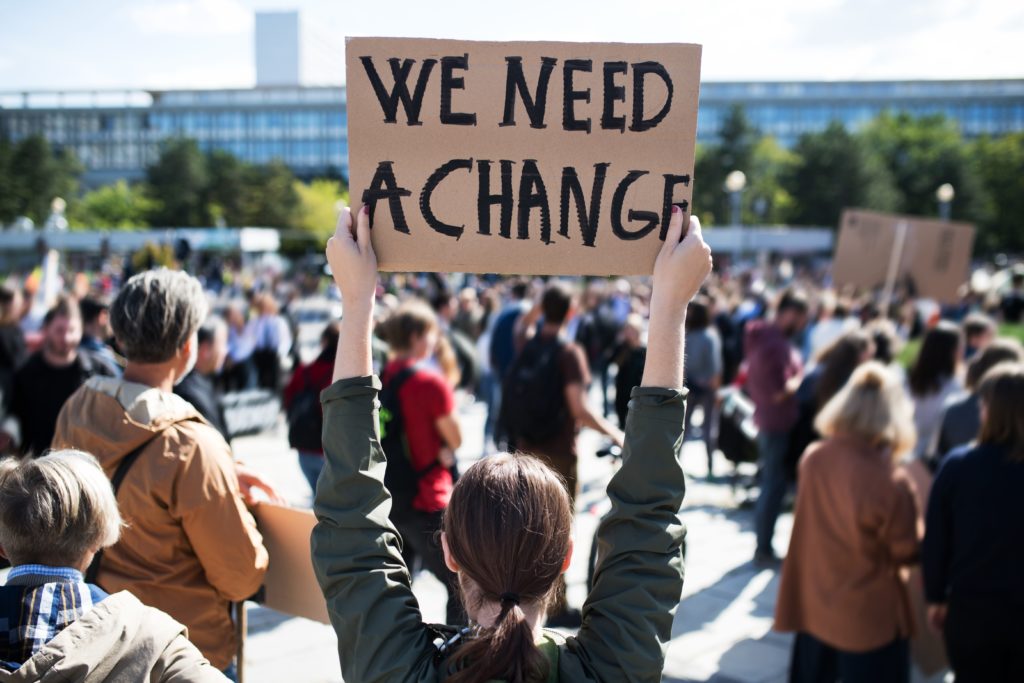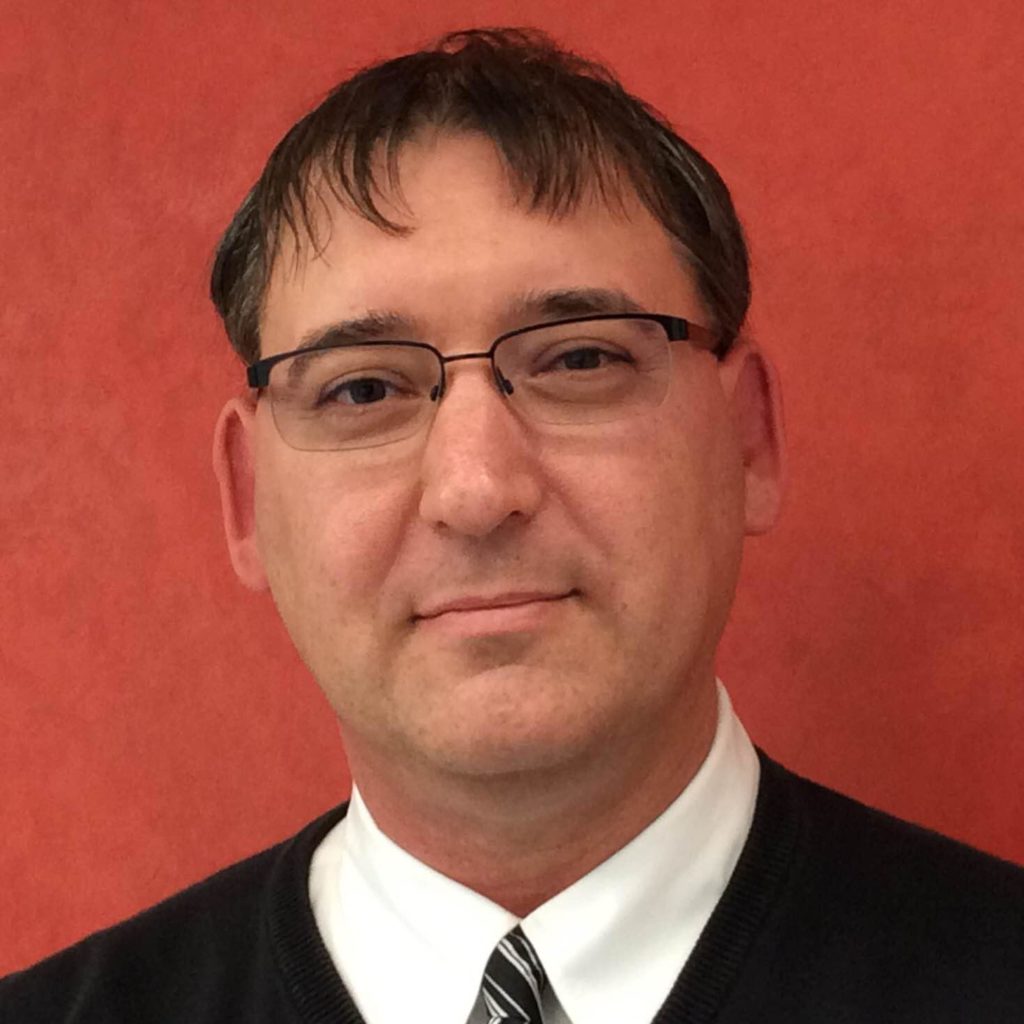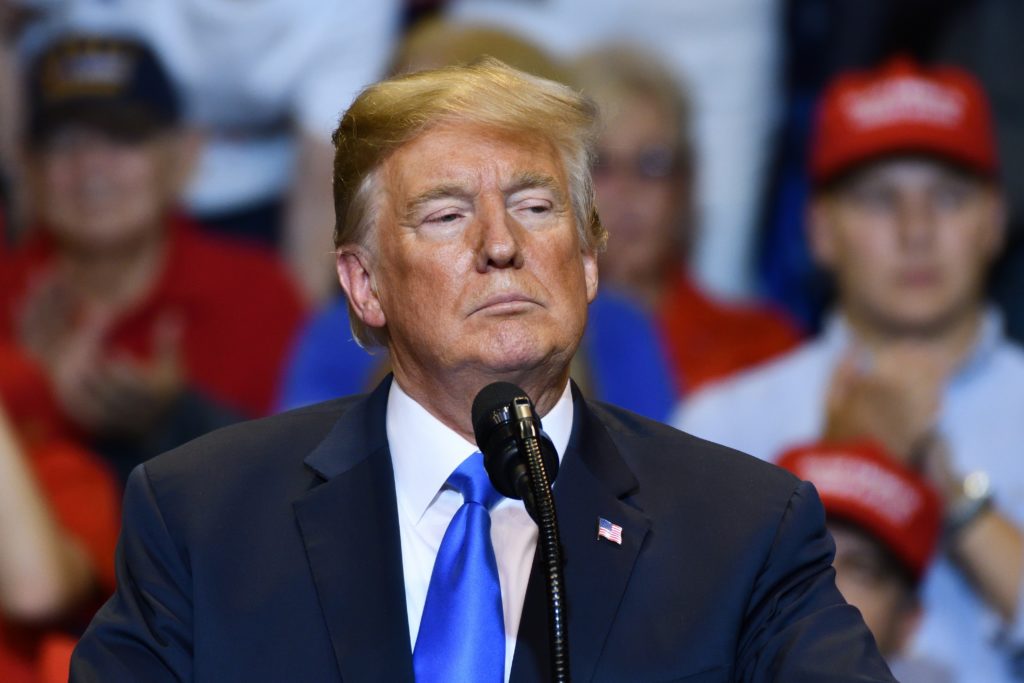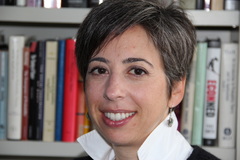Three York U thought leaders consider the effects of the Trump-plus-COVID double whammy, the erosion of trust and the mending of international relations. In discussion with Brainstorm guest contributor Paul Fraumeni, these change makers offer their expertise on how 2021 needs to unfold.
Joe Biden is the 46th president of the United States of America. On Jan. 20, his inauguration will make it official.
Now what?
He has a lot of work to do.

His predecessor, Donald Trump, certainly left his mark. He pulled the U.S. out of the Paris Climate Accord and the World Health Organization. He threatened his country’s biggest trade partner, Canada, with sanctions. His Twitter commentary during his presidency resulted in an upsurge in racial divisions not felt this stingingly for decades. (His invective even led some of his followers to storm the U.S. Capitol on Jan. 6.)
And yet Trump was still able to win more than 74 million votes, leaving the U.S. deeply divided.
But before the Biden team can begin to mend the fences broken by Trump, they have got one big glaring problem to deal with: the SARS-CoV-2 virus, which has caused the COVID-19 pandemic and the horrors it has unleashed on people around the world. This is particularly pressing as many people felt the U.S. should have handled the pandemic response much more effectively.
In fact, York University’s Professor Jack Rozdilsky of the School of Liberal Arts & Professional Studies (LA&PS) thinks Trump’s handling of COVID has resulted in a “catastrophe” in the U.S. – and one that must be dealt with immediately.

Rozdilsky is an associate professor of disaster and emergency management. He studies every kind of major event resulting in massive destruction and multiple deaths – from the 1917 collision of two ships in Halifax, Nova Scotia’s harbour that killed 2,000 people to the 2016 wildfire that ripped through Fort McMurray, Alberta.
When Rozdilsky spoke with "Brainstorm" in late November 2020, he noted that the U.S. had the leading international death toll from COVID-19 with 268,662.
“It’s a catastrophe. America’s COVID-19 death toll now ranks fourth in that country’s death tolls. Only World War II, the American Civil War and the 1918-1919 flu pandemic killed more Americans,” he says, adding: “To be fair, for any president, COVID-19 would have been difficult to manage and the death toll would have been difficult to bear. But this catastrophe happened under Trump’s watch.”
Rozdilsky points out that dealing with a disaster has as much to do with leadership and the behaviour of a leader as it does with what we normally view as the measures needed to contain the disaster. “For example, a leader can decide to take policy steps to facilitate actions to contain a disaster, like funding airplanes to drop water on a wildfire. Alternatively, a leader can add fuel to the fire by behaving in ways to increase the spread of COVID-19. All disasters are political.
“The demeanor and action of the president matter,” he says. “Instead of initiating appropriate disaster management steps, Trump did not lead a national-level strategy to coordinate and provide resources for a 50-state strategy to stop the spread of COVID-19. He purposely downplayed the dangers of COVID for political reasons, acted to undermine science and evidence-based approaches to manage the pandemic, touted unproven theories, denounced mask wearing, politicized public health practices and modelled behaviour contradicting public health practices.”

So, that was the Trump effect. What can Joe Biden do about it?
Rozdilsky believes it is surprisingly simple: “If Biden starts first by personally acting to model good public health steps, like mask wearing and social distancing, and then, policy-wise, does the opposite of what Trump did, perhaps the U.S. can move from catastrophe response to catastrophe recovery in 2021.”
But will the American people – and global society – trust Biden to change things at home and in terms of the country’s relationship with other nations?

That will be a challenge, says York sociology Professor Cary Wu (LA&PS), who focuses his research on trust.
Wu notes that interest in politics has been declining for years because of citizens’ lack of trust in the government – especially federal – as well as a lack of trust among individuals.
“When people don’t trust in each other, they have little concern about political life or each other’s lives. They’re less likely to vote because when people have no trust, they have a lower sense of efficacy. They think they can’t change the situation. They think one individual vote doesn’t matter,” Wu explains.
But that changed in the recent U.S. election, he says. “It was a different story because Trump angered a lot of the younger, more educated people. And they expressed that anger by voting for Biden.”
Still, Trump supporters turned out en masse, infuriated by the government telling them what to do during the pandemic, Wu says. “You see this in the huge distrust in science now and the belief that the voting system was fraudulent. It’s irrational and hard to explain why this is so, but the tight race in this election illustrated a very deep divide in the States.”
That leaves Biden with a serious challenge. “Whether it’s between countries or individuals, trust is very easily broken. It can take years to restore trust. With Biden, it’s hard to say what he can accomplish now. Over the next four years, he has a lot of work to do.”

Glendon political scientist Professor Ellen Gutterman, who specializes in international relations, believes that if Biden can rebuild that trust, then the U.S. will be able to regain the important role it has played in international affairs for the past 75 years.
“The United States emerged from World War II as the most powerful nation in the world. It did many things with this power, but one of the most positive was how it proceeded with its allies to establish a set of global institutions, to help structure world order, politically and economically, in a cooperative way,” she explains. “The U.S. sponsored the creation of the United Nations, the World Bank and the International Monetary Fund. And those institutions came to be identified as institutions of a liberal international economic order, a system of rules and multilateral governance to address global problems, such as economic development, protecting the environment and promoting human rights.”
Reestablishing America’s role in those institutions is key, but Gutterman emphasizes that Biden faces particular challenges in international relations: “Credibility and trustworthiness are important assets in international cooperation. Trump’s policies in the Middle East and elsewhere have been potentially destabilizing. Biden and his people will need to be working hard to repair relationships with allies, such as European nations, the United Kingdom, Canada and in the Middle East.”
Gutterman adds that the rise of conservative populist leaders has created a shift in global power: “Leaders like Brazil’s Jair Bolsonaro and autocrats in Hungary, Russia, Turkey and elsewhere … these guys are popular, and Trump has been the same. They’re not appealing to the higher ideals of multilateralism and cooperation. Instead, they appeal to very simplistic, ‘us-versus-them’ narratives that appeal to people looking for easy answers in an increasingly complicated world.”
Gutterman and Rozdilsky both believe that once the pandemic is under control, Biden’s first challenge is at home.
“He’s got a tremendous domestic crisis to deal with,” says Gutterman. “This health crisis and the resulting economic crisis. The U.S. government will need to spend time, at first, sorting out its own domestic matters, more so than taking bold initiatives on the global stage.”
On the more positive side, Rozdilsky thinks Biden is right for this challenge: “Due to his experience in governance, his character, ethos or guiding beliefs are much better suited [than Trump’s] to address the crisis at hand.”
To learn more about Rozdilsky, see his Faculty Profile page. For more on Wu, visit his Faculty Profile page. To learn more about Gutterman, see her Faculty Profile page.
To learn more about Research & Innovation at York, follow us at @YUResearch; watch our new animated video, which profiles current research strengths and areas of opportunity, such as Artificial Intelligence and Indigenous futurities; and see the snapshot infographic, a glimpse of the year’s successes.
Paul Fraumeni is an award-winning freelance writer, who has specialized in covering university research for more than 20 years. To learn more, visit his website.
